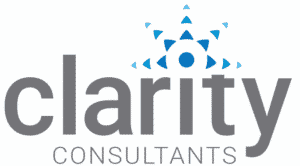[feat-img-left]
“Jeanne Meister Shares Tips on How Organizations Can Prepare
Although the global economy is still down and unemployment is still up, the global talent shortage will be acute by 2020. This and other findings are revealed in The 2020 Workplace: How Innovative Companies Attract, Develop, and Keep Tomorrow’s Employees Today, by Jeanne Meister and Karie Willyerd (HarperCollins, May 2010). The authors discuss how members of five generations are combining to create a new workplace paradigm, one that requires an innovative approach to recruitment, reputation, responsibility, and learning.
They surveyed 2,200 members of four generations currently in the workforce, even parsing their preferences for communication: style, content, context, attitude, tactics, speed, and frequency. Traditionalists value detailed, authoritative content, while Generation Xers want you to get quickly to the bottom line, then allow them to question the information. Interestingly, Traditionalists and Millennials share a respect for authority and a desire for relevance, but Millennials prefer to find the information they need themselves.
Informed by the major trends they uncovered—a multigenerational workforce, a blurring of the lines between life and work, and the need for organizations to be über-connected—the authors offer a practical game plan to transform businesses for success in the talent wars, as well as 20 predictions for the workplace of 2020. Meister is an internationally recognized thought leader, speaker, and author on enterprise learning; earlier works have included Corporate Universities: Lessons in Building a World-Class Work Force. Willyerd served as chief learning officer at Sun Microsystems, the top-ranked learning services department in the world in 2009. Together, the authors have founded FutureWorkplace.com and blog for the Harvard Business Review.
Why is human resource development your passion? Why have you made it your life’s work?
Meister: In my previous life, I worked in new product development, so I guess my life’s work has really been about innovation… I think there is nothing more important than how companies invest in their people; it’s the only true source of competitive advantage.One prediction is that social media literacy will be a requirement for all employees. What is social media literacy?
Meister: What we really mean by “literacy” is that employers will have to train their employees on how to conduct themselves online as a representative of the enterprise. People need to be told what to disclose and what not to, as they carry the employer brand with them online. This training will become as essential as diversity and ethics training. Employers must create understandable guidelines that show employees how to be respectful and responsible. It’s confusing, because people are now using the same tools in their professional lives as they do in their personal lives. They need to understand that what is in the public domain will follow them forever. Employers can help their employees understand the potential implications of their actions online.Why do you think that multiple generations will have such a major impact on the 2020 workplace?
Meister: That’s a big takeaway from this book: that there will be members of five generations in the workplace in 2020. Their various generational working and learning styles will change the way we do business. Yet, we were surprised to find that it’s not just younger people who are into social media; the usage and power of social media to connect and communicate is a multigenerational phenomenon. Social media can also facilitate companies’ accommodation of generational preferences. For example, Millennials crave constant feedback; they don’t want to wait until the annual review to see how they’re doing. Social media makes on-demand mentoring and microfeedback possible; we see more companies reaching out through these platforms.One of your predictions is that “The corporate curriculum will use video games, simulations, and alternate reality games as key delivery modes.” Why is this important?
Meister: More than 11 million people already play World of Warcraft. As they enter the workforce, they will increasingly expect corporate training to mimic their online experience. Multiplayer online role-playing games are great for developing leadership and complex critical-thinking skills. Alternate-reality games allow corporate training to mimic real-world experiences in a safe, no-risk environment. They fully engage participants in a highly collaborate and social experience, while they learn a range of complex skills. Games also speak to Gen Xers’ desire to question content, and to Millennials’ desire to find information for themselves.How can communications professionals and their organizations prepare for the 2020 workplace?
Meister: We recommend that they emphasize agility. It’s crucial to develop an organizational ability to acquire new knowledge and skills across functions to adapt to a changing environment. Social networking platforms can help to facilitate knowledge sharing, but it’s also important to continue to learn about learning. Conduct learning reviews after every major customer win or loss. Ask questions across the organization to anticipate and visualize the future. Use the work environment as a learning laboratory.
“